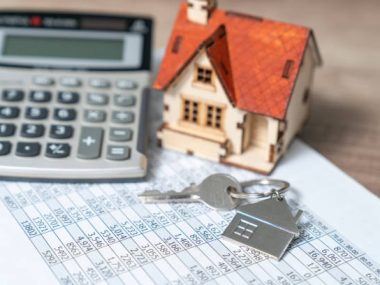How is rental income taxed when you have a mortgage? Investing in real estate by owning rental properties can be a lucrative venture, offering both potential income and long-term appreciation.
However, managing rental properties also comes with a set of financial responsibilities, including understanding how rental income is taxed, especially when you have a mortgage on the property.
The interaction between rental income and mortgage payments can significantly impact your tax obligations and financial outcomes.
This article delves into the intricate world of rental income taxation, shedding light on how the presence of a mortgage can influence your tax liabilities, deductions, and overall financial strategy.
By unraveling the complexities of this topic, you’ll gain insights that can help you optimize your rental property investment and navigate the tax landscape more effectively.
Also Read:
How Many Days Before Closing Do You Get Mortgage Approval?
How Does a Reverse Mortgage Work When You Die?
How Is Rental Income Taxed When You Have a Mortgage?
When you earn rental income from a property for which you hold a mortgage, the taxation process becomes a nuanced endeavor that involves the interplay of various financial factors.
The taxation of rental income with a mortgage is influenced by both the income you generate and the expenses you incur.
The rental income you receive is generally considered taxable, and it must be reported on your tax return.
However, the presence of a mortgage introduces complexities.
Mortgage interest payments can often be deducted as an expense, which can offset a portion of your rental income for tax purposes.
This deduction can prove advantageous, potentially lowering your overall taxable rental income.
Moreover, depreciation offers another potential tax benefit.
Rental properties are subject to depreciation deductions, allowing you to write off a portion of the property’s value over time.
This can further reduce your taxable rental income, potentially resulting in a lower tax liability.
It’s important to note that while mortgage interest and depreciation can provide tax advantages, other factors such as mortgage principal payments and property maintenance costs may not have direct tax implications.
Understanding the intricacies of how rental income is taxed when you have a mortgage is crucial for optimizing your tax strategy and maximizing the returns from your real estate investment.
Seeking guidance from tax professionals is recommended to ensure compliance with tax laws and to make informed financial decisions.
Impact of Mortgage Interest on Taxation
The impact of mortgage interest on taxation is a pivotal consideration for individuals who own property, particularly for those involved in real estate investment.
Mortgage interest payments can significantly affect one’s tax liabilities and financial planning.
In the context of rental properties, mortgage interest is often a deductible expense.
This means that the interest paid on the mortgage can be subtracted from the rental income when calculating taxable income.
By deducting mortgage interest, property owners can potentially lower their overall taxable rental income, consequently reducing their tax liability.
This deduction can play a vital role in improving the property’s cash flow and profitability.
However, it’s essential to be aware of certain rules and limitations.
For instance, there might be caps on the amount of mortgage interest that can be deducted, depending on factors like the loan amount and the property’s use.
Additionally, for personal residences, there are separate rules that govern mortgage interest deductions.
Understanding the nuances of mortgage interest deductions is crucial for optimizing one’s tax strategy.
Property owners should keep accurate records of their mortgage interest payments and consult with tax professionals to ensure compliance with the latest tax regulations and to make informed financial decisions.
Ultimately, leveraging the impact of mortgage interest on taxation can contribute to a more favorable financial outcome for property owners.
Reporting Rental Income and Mortgage on Tax Returns
Reporting rental income and mortgage details accurately on tax returns is a vital process that requires attention to detail and adherence to tax regulations.
Rental income earned from properties must be reported on the appropriate tax forms, such as Schedule E for individual taxpayers.
Alongside this, providing accurate information about the mortgage related to the rental property is crucial.
For rental income, individuals should detail the total income received from tenants, including rent payments and any additional payments for services or utilities.
On the other hand, mortgage-related details encompass reporting the interest paid on the mortgage, which is typically deductible, and the property’s depreciation, if applicable.
Precise documentation of income and expenses is essential to avoid discrepancies that could trigger audits or penalties.
Maintaining comprehensive records of rental income and mortgage expenses, including receipts, invoices, and loan statements, is advisable to substantiate the information reported on tax returns.
Filing taxes for rental properties can be complex due to the interplay between rental income, mortgage-related deductions, and depreciation.
As such, seeking professional assistance, such as from certified tax advisors or accountants, can provide peace of mind and ensure accurate reporting.
By diligently reporting rental income and mortgage details, taxpayers can fulfill their obligations, optimize deductions, and avoid potential legal or financial ramifications.
Also Read:
How Do Mortgage Interest Rates Work?
Does Rocket Mortgage Do Home Equity Loans?
Conclusion
In the realm of rental property ownership, understanding how rental income is taxed with a mortgage is essential for financial success.
The intricate relationship between rental income, mortgage interest, deductions, and depreciation can significantly impact tax liabilities and overall profitability.
Navigating this landscape demands careful consideration, accurate reporting, and potentially seeking professional advice.
By grasping the implications of mortgage-related factors on taxation, property owners can make informed decisions, optimize their tax strategies, and ensure compliance with tax regulations.
This knowledge empowers individuals to leverage their rental investments to their fullest potential while mitigating risks and maximizing returns.






